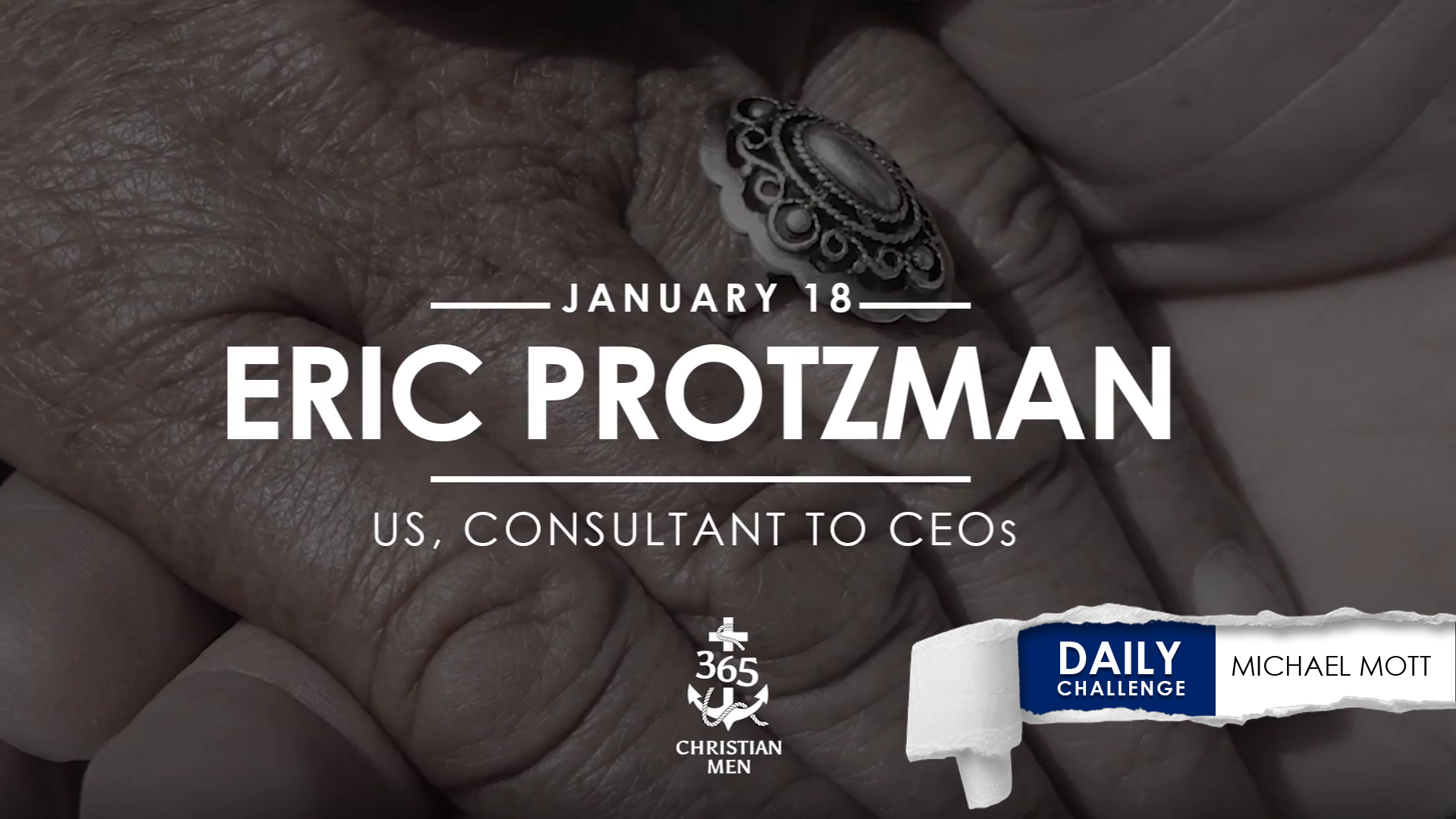January 24. Patrick Morley. In 1973, Patrick founded Morley Properties, which for several years was one of Florida’s 100 largest privately held companies. At the same time, he was the president or managing partner of 59 other companies and partnerships.
In 1986, Patrick started The Man in the Mirror Bible Study, which has grown to include approximately 10,000 men, and Man in the Mirror Ministries has helped 35,000 churches impact the lives of 12 million men worldwide.
In the middle of all this work, Patrick came to believe “that 90 percent of Christian men lead lukewarm, stagnant, defeated lives—and they hate it.” So he wrote a book for them: Man Alive, which shows men how they can “experience a powerful life transformed by Christ.” On this date in 2012, Patrick released the audio version of his book Man Alive.
“The ministry of Man in the Mirror exists,” says Patrick, “in answer to the prayers of all those wives, mothers, and grandmothers who have for decades been praying for the men in their lives.” Today’s story is partly about one of those wives.
A man’s life can only be satisfied by the Giver of life.
Patrick didn’t know he had a problem until the day his wife Patsy—tears flowing down her face—asked him if there was anything he liked about her. Unable to put what he was feeling into words, he just left the house and went to work.
As far as things like success and money went, Patrick had it all. But he was as miserable as he had been in high school. And now he was taking it out on his beautiful wife. Her tears made him feel like a selfish fool.
The truth was for years Patrick had been waging a personal battle against meaninglessness. Though he didn’t know how to spell it out, truth was that school, work, and life in general had left him feeling hollow.
After Patrick quit high school as a senior, his dad sensed the lack of direction in his son’s life and pushed him to join the army.
And the army was a perfect fit. It gave Patrick a sense of purpose and identity, and he thrived in the disciplined atmosphere. He also obtained his GED and later graduated from college and earned a PhD.
But the thrill of being in the army didn’t last forever, and soon the gnawing sense of dissatisfaction returned. After his discharge, Patrick was back to staring at himself in the mirror and wondering: what’s the point?
Patrick had to find something new—some new purpose that could ward off the meaninglessness he felt—and he wouldn’t settle for mediocre. It had to be something big.
Financial success would solve all his problems—he told himself.
So, Patrick got into the real-estate business. He set big goals and achieved them. In six years, money was piling up faster than he knew how to spend it. He accumulated everything a man of stature could want: beautiful wife, lovely home, luxury car, tailored-for-him suits, and a Rolex watch.
But Patrick felt empty. Every goal conquered brought a temporary fix, but then he needed an even grander goal to accomplish. After all this, he was sitting at his fancy desk with beautiful Patsy in his lovely home—and she was wondering if there was even one thing that he liked about her.
Driving home from church, with all the grace of a charging grizzly, Patrick had complained to Patsy about something she had done that had embarrassed him.
Patsy cried.
The Spirit of God touched Patrick’s heart, and the mean grizzly cried, too.
Patrick waved his white handkerchief before the Lord. He surrendered. A broken man, he prayed that God would make his life worthwhile. He couldn’t manage anymore without Jesus.
“‘Meaningless! Meaningless!’ says the Teacher. ‘Utterly meaningless! Everything is meaningless. What do people gain from all their labors at which they toil under the sun?’” (Ecclesiastes 1:2–3 NIV).
What purpose does the Lord have for your life? A man’s life can only be satisfied by the Giver of life.
Morley, Patrick. Man Alive. Colorado Springs: Multnomah Books, 2012.
Morley, Patrick. Seven Seasons of the Man in the Mirror. Grand Rapids: Zondervan, 2002.
Story written by: Toni M Babcock, https://www.facebook.com/toni.babcock.1














